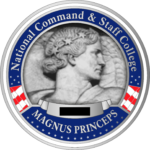Instructions:
- Post a new discussion related to the topics covered in this module. Your post needs to provide specific lessons learned with examples from this module helping you enhance your leadership capacity at work.
- After posting your discussion, review posts provided by other students in the class and reply to at least one of them.

5 Comments
It is a sad reality of law enforcement that dealing with societies problems every day can create a cynical outlook on life. When officers first come to the job it is exciting and different every day and they become entrenched in the profession. There is a saying that “police work gets in your blood.” It creates a brotherhood, or a strong social unit of people who understand the situations they’ve been through because they have also been there. The excitement causes a physiological response and people get addicted to the roller coaster of highs and lows and work starts to become more attractive, relationships at work become more intense, and relationships outside of work start to look boring. It is crucial not to socially isolate away from family or the rest of society. It becomes more important to actively balance time spent in the areas in the time/life model: leisure activity, growth and development, physical fitness, work, family, survival activity, and community involvement. Community involvement becomes important to remind officers that there is good in society and what they are fighting for on the road and to help develop relationships with the people they serve.
Community leadership plays a crucial role in enhancing public safety agencies and preventing cynicism. Effective leadership in a community can inspire trust, promote transparency, and foster cooperation between the public and law enforcement agencies. This can lead to improved communication and collaboration, which can help solve crimes and prevent future incidents.
Furthermore, community leadership can help prevent cynicism by promoting accountability and transparency within public safety agencies. When leaders are transparent about their actions and decisions, it can help build trust and avert cynicism from setting in. Additionally, community leaders can encourage public safety agencies to be accountable for their actions, ensuring they always act in the best interest of the community they serve.
Community leadership is crucial for public safety agencies to operate effectively and prevent cynicism. Effective leadership can promote trust, transparency, and cooperation, improving communication and collaboration between the public and law enforcement agencies. By working together, we can create safer, more cohesive communities.
Having a life outside of public safety is critical to surviving this career. This lesson provided some good strategies and ways to engage outside of work. I strongly believe that having relationships with people outside of the field is essential to staying firmly planted in reality and being less cynical. I also think engaging with neighbors and community members in our own community (not just at work) can help foster positive relationships between the public and law enforcement. I’m also a big proponent of volunteering a couple times a year to give back and remember why we do the jobs we do.
I also thought Stockman’s Time/Life model was interesting:
1. Leisure activity
2. Growth and development
3. Physical fitness
4. Work
5. Family
6. Survival activity
7. Community involvement
I think all of these things are important to have a well-rounded life. It’s especially important in the shift work world to carve time out for these different pieces to make sure we have good balance.
I completely agree with you. Having a life outside of work is crucial for maintaining a healthy work-life balance, especially in a high-stress field like public safety. It’s essential to have relationships with people outside of work to stay grounded in reality and avoid becoming too cynical. Engaging with neighbors and community members can foster positive relationships between law enforcement and the public. Stockman’s Time/Life model is an interesting way to balance different aspects of life. All of the seven components are essential for a well-rounded life. It’s important to carve out time for leisure activities, personal growth and development, physical fitness, work, family, survival activities, and community involvement to achieve a healthy balance.
I also found the time/life model to be interesting and think it would be a useful tool to remember to work on these things often to have a well-rounded life. Often times what attracts police officers to the job can be their undoing when the novelty wears off. Balance becomes more important as time goes on and officers need to have a life outside of the job.